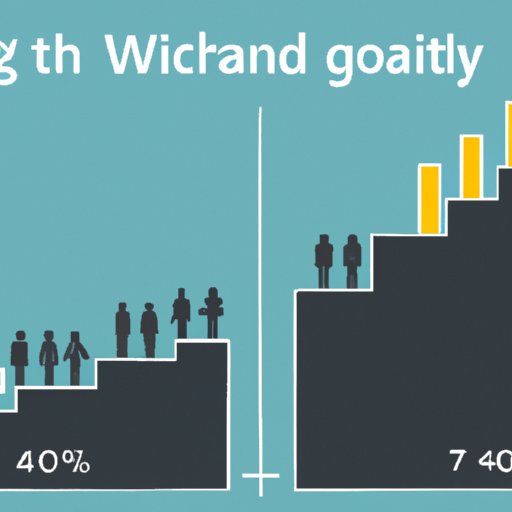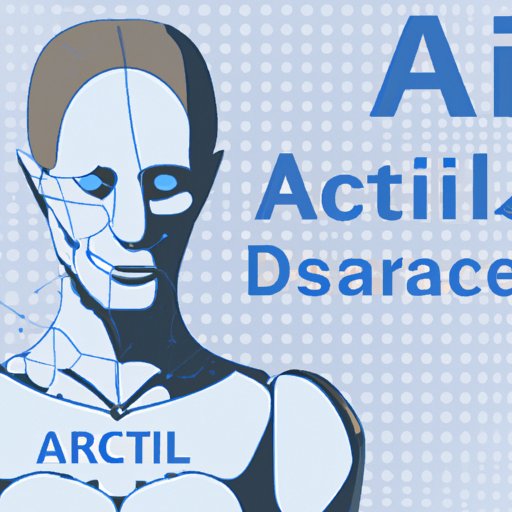Introduction
Artificial intelligence (AI) is a rapidly growing field of technology that has been gaining more and more attention in recent years. AI refers to computer systems that are designed to carry out tasks that usually require human intelligence, such as visual perception, speech recognition, decision-making, and language translation. While AI has the potential to offer many benefits, it also poses a number of risks to society. This article will explore some of the potential negative impacts of AI, including malicious uses, job displacement, increased inequality, privacy concerns, bias and discrimination, errors and mistakes in decision-making, and lack of accountability.
Potential Malicious Uses of AI
One of the potential dangers of AI is its potential use for malicious purposes. According to a report by McAfee, “The misuse of AI could lead to cyber-attacks that are faster, stealthier, and more difficult to detect than ever before.” AI-powered cyber-attacks could target companies, governments, and individuals, leading to the theft of data, money, or intellectual property. AI could also be used to create fake news and spread misinformation on a massive scale, with potentially devastating effects on public opinion and trust in institutions.
Job Displacement and Unemployment
Another potential problem posed by AI is the displacement of jobs and rise in unemployment. A study by McKinsey & Company found that automation, powered by AI, could displace up to 800 million workers worldwide by 2030. This could have a significant impact on industries such as transportation, manufacturing, retail, and healthcare, which are increasingly relying on AI-powered technologies. It could also have a devastating effect on workers, who may find themselves unemployed or forced to take lower-paying jobs with fewer benefits.

Increase in Inequality and Widening Wealth Gap
AI also has the potential to increase inequality and widen the wealth gap. The introduction of AI-based technologies could lead to greater concentration of wealth among those with access to these technologies, while those without access may find themselves at a disadvantage. Furthermore, AI algorithms are not always programmed fairly, which could lead to unfair outcomes that further exacerbate existing inequalities.
Privacy Concerns
AI systems often collect large amounts of personal information, such as location data, browsing history, and purchase histories, without the explicit permission of users. This raises serious privacy concerns, as this data could be used for malicious purposes such as identity theft or targeted advertising. In addition, AI systems are often opaque, making it difficult for users to know what data is being collected and how it is being used.
Bias and Discrimination
AI systems are not always programmed to be fair, and they can inadvertently perpetuate biases and discrimination. For example, an algorithm used to predict recidivism rates was found to be biased against black defendants, leading to higher rates of incarceration for them. In addition, AI systems can be used to target certain groups, such as minorities or low-income communities, with ads or services that are not offered to other groups.
Errors and Mistakes in Decision-Making
AI systems are not perfect and can make mistakes in decision-making. AI systems lack the ability to think critically and make decisions based on human judgment, which can lead to incorrect or even dangerous results. For example, an AI system used to diagnose medical conditions was found to make mistakes that could put patients’ health at risk.
Lack of Accountability
Finally, AI systems can be difficult to trace back to their source, making it difficult to hold them accountable for mistakes or abuses. As AI systems become more complex and autonomous, it can be difficult to trace decisions back to their source, making it hard to identify who or what is responsible for any mistakes or abuses.
Conclusion
In conclusion, AI has the potential to bring great benefits to society, but it also poses a number of risks. The potential malicious uses of AI, job displacement and unemployment, increased inequality and widening of the wealth gap, privacy concerns, bias and discrimination, errors and mistakes in decision-making, and lack of accountability are all potential negative impacts of AI. To ensure that AI is used responsibly and safely, it is important that safeguards and regulations are put in place to protect individuals and society as a whole.
(Note: Is this article not meeting your expectations? Do you have knowledge or insights to share? Unlock new opportunities and expand your reach by joining our authors team. Click Registration to join us and share your expertise with our readers.)
